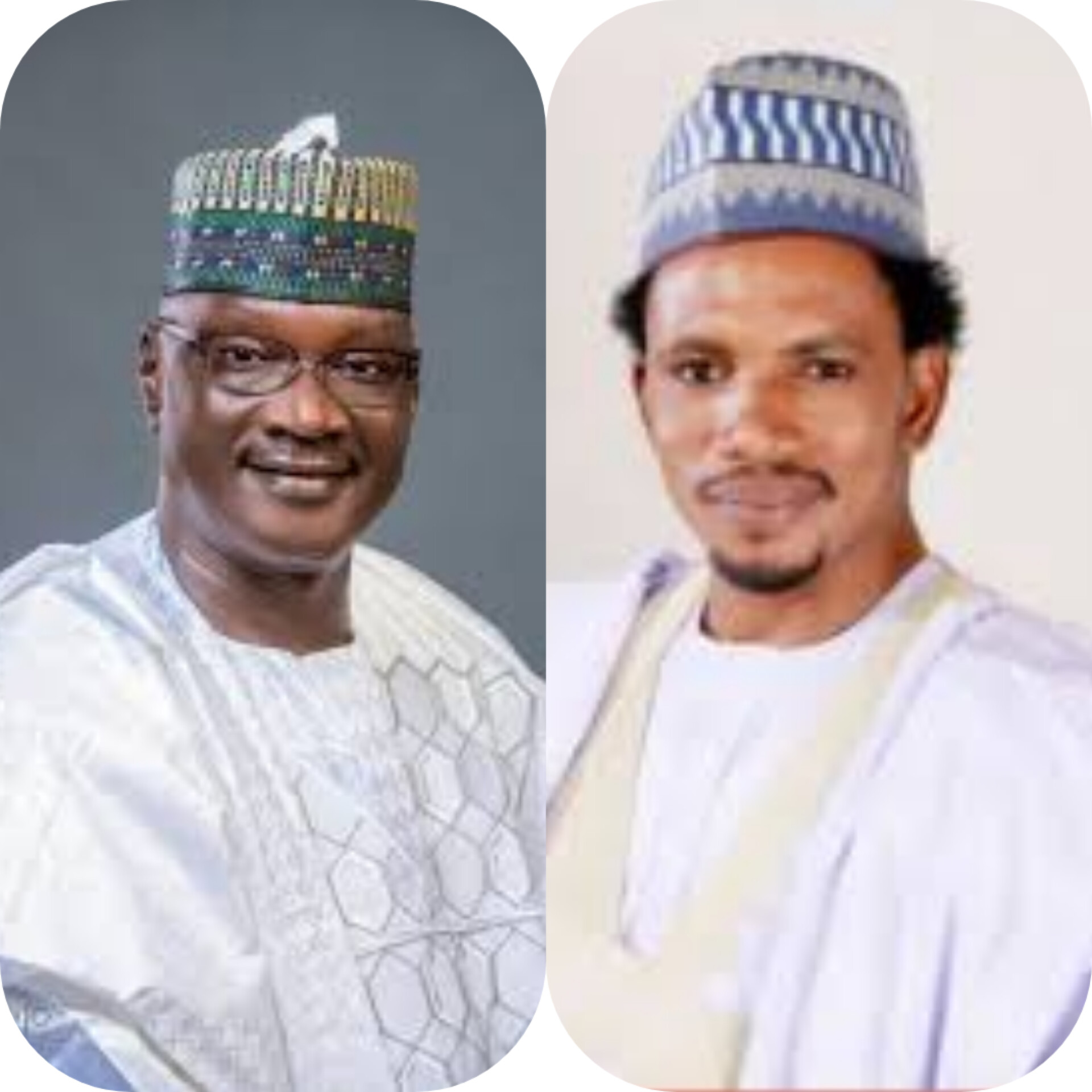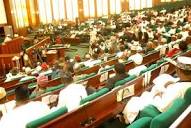The Senate has clarified the grey areas in its recent approvals of N500b and $800m which left many Nigerians bewildered over the fear that the new Government of president Bola Tinubu has also come to increase the benchmarks for borrowing.
Nigerians were apprehensive going by how the compliant 9th National Assembly enabled former President, Muhammadu Buhari not only to amass a national record-breaking debt burden in eight years, but also gave approval for more in his last days in office.
The DMO had put the total national debt at N46.25 trillion by December 2022.
However, the Senate spokesperson, senator Adeyemi Adaramodu explained that it approved N500 billion requested by President Bola Tinubu for palliatives to cushion the effect of the Fuel subsidy removal on common Nigerians.
“Yes, the other issue which the Senate treated is the issue of N500 billion palliatives which the President asked for in order to cushion the negative effects of the fuel subsidy removal on the common Nigerians. “Definitely, that may not be enough because there are many other aspects which the government can delve into especially as we learnt that government has been having talks with the organised Labour, and I think the Federal Government is going to do something in that area.
“But in the immediate, what is the stopgap for especially the dependent Nigerians so as to lift them up before other palliatives come?
“We feel the problems too, and that is why we believe that the average Nigerians must be assisted because we are running a human face government. When we are running a human face government, then everything that will be done must be targeted at Nigeria.
“That is why we expeditiously aceeded to the request of Mr. President because appropriations belong to the National Assembly.
“So, no Kobo can be spent without appropriating it by the National Assembly. It took us time to pass it because we have all pointers that this palliative is going to yield result. It is going to touch those people that it supposed to touch. So, that is why it was passed.
He said, the $800 million is like a social security scheme, which the Federal Government has sourced for because “we know that the N500 billion cannot do the magic; so the $800 million will follow in and assisting Nigerians overcome the economic hardship in the country. So, that is why we approved these requests by Mr. President.
On what measures are in place to ensure that the palliatives get to those who ought to get it?
“You know we were not part of the previous palliatives, and for this 10th Senate, we asked questions because all of are concerned; my town is concerned, my Senatorial District is concerned and my State is concerned, and every other person.
“So, we were not part of any previous palliatives and we are not concerned about what was given before. I am not aware of whatever palliatives that had been done before but what is on ground is that when we asked questions about data, data was supplied; and when we asked questions about modus operandi, modus operandi was supplied. “Therefore, there is no reason and there is no point that we should doubt the veracity of those explanations, empirical one for that matter.
“Another thing is that, even when you talk about palliatives in the past, fuel subsidy had never been removed before. So, this one is that fuel subsidy had been removed and everybody knows that one. And this one is targeted to cushion the effect of an action of government, to shore up the economy of Nigeria.
“Therefore, this one cannot go the way of the others. We all know that there had never been a time the government came to the National Assembly to ask for palliatives. It used to be through a Ministry such Ministry of Humanitarian Affairs and Disaster Management.
“But this one is a direct Federal Government dealing with the citizens and we don’t have any reason to doubt the genuineness of the scheme.
When asked why Federal Government will remove fuel subsidy only to start seeking for a loan of $800 million to cushion the effect in the system?
He said, the issue of $800 million came up towards the end of the last government. “The opinion of many Nigerians was that, when it was just few days to go, where will you expend it? Can you bring up a very good agenda of how you are going to expend it? And if any such money is coming to the coffers of Nigeria, it has to be legislated and it must be targeted at something.
“And you know that it is a World Bank facility. It has been on before the advent of this government. So, it is not borrowing, it is for the national social safety net.
“So, it is very different from the palliatives targeted specifically at Nigerians and to be sourced among Nigerians. It is not borrowing; it is not a loan, we are not approving a loan for the Federal Government.
“It is a World Bank assisted facility that has been there before the 10th Senate.”

He said the Senate is only appropriating the fund since any money that is coming from outside or that is being taken out of Nigeria coffers must be legislated upon, so that is what the Senate has done.
“I have always recommended that when ever appropriation is done, let us avail ourselves of the opportunity of reading through. So that oversighting does not reside only with Assembly people even we as journalists can oversight.
“So if we oversight very well, we know that, there is not a new thing as a budget. When you look at all items here they were part of 2022 budgetary provision. The only one that is new is that N500b which had to be sourced for within the budget that had been in existence.
“So any other budget tittle or heading that is there. Because of the N500b we now first line charge towards the next budget of 2024 which have to start from September. That is the implication.
On N70bn for National Assembly,
“I always say one thing. Even if it is 10k in the budget they write for National Assemby that is what Nigerians will first talk about.
“They would have forgotten that National Assembly is not only about senators or house representatives members. We cannot give ourselves salary, it is not possible, it is illegal. That person will go to jail, there is an organ Revenue Mobilsation Allocation and Fiscal Commission (RMFAC) that do that. Either salary or allowance National Assembly cannot give themselves kobold. They can’t add or even subtract. RMFAC will never do it for only National Assembly. “When they are doing it they will do it for everybody and they have no reason to do it and it has never been done. Nothing like that has ever happened. “Even when I read sometimes ago, 831% increase, whatever. I said where did that one come from. When they gave me my salary for May, I found out it did not change, it was the same thing with 2019 salary of June 2019.
“That 4 years, my salary never changed. But it is good that we are very alive to it, we have even forgotten that National Assembly includes all those people that work here, messengers and all sorts. You don’t know if I am not here many Nigerians too will not be here. They will be unemployed too.
“Those people who sweep the office, they are there because I am there. There will not just include them to start sweeping outside there, the drivers, the sweepers, and several others and consider even the energy, power and so on.
“When you look at it, it will be paid by the budget allocated to the National Assembly. So when you see National Assembly it is not definitely members.
“If we avail ourselves of having looked at 2022 budget very well you will find out that nothing there is new. The only thing that is new there is that N500b.”
He said why all other things must be brought forward is that we must show it in appropriation to make it a law that yes, these have been like this, these have been like that, we remove N5 from here, N2 from there and N3, we joined them to make N10, that is that N10 that we are spending but everything must still come together.
“So it is not anything to anybody. Our salary, has not increased, allowances have not increased. If it is going to I will clap for myself.
On how the budget would be funded,
Budget funding, “First of all, I want to crave your indulgence about this, maybe One or two years back, we were told the number of litres of petroleum Nigerians are consuming everyday, few weeks ago after the removal of subsidy we now had almost the actual number that Nigerians are consulming. “Now when you subtract that over bloated number from the real number now and you multiply by how much is that is money.
“When you see these fake astonishing merchants who carried only brief cases and call themselves petrol bridgers who made sure they feasted on the resources of Nigeria through oil subsidy, when that one is removed, omnipotently you know that there would be savings. That savings, 2023 budget is already on, that saving would be like an extraneous gain over the budget which had already started.
“When you make budget estimates you will now tell us where the funding will come from but this one now, instead of that N500b which would be available to fund the existing, for bridge or road there, we are pulling them together because of the emergency, whatever, then you are pulling that together now in the emergency and giving it to the people. “Look we can afford to be giving you liters of fuel because it is your own property, your own inheritance but let us turn it to Naira and give that to people, that is the issue of this one, let us turn it to Naira and give that monthly.
“The issue of where money will come from does not arise because they have not come to us to say they want to borrow money. If they come to us and say they want to borrow then we can ask that question, where is the money coming from.
“So whoever, It is like a blind man who threatens you that he is going to throw a stone at you. If the stone is not in his hands he has put his leg on top of the stone. So it is a blind man that want to throw a stone at you, where is the stone, the stone is in his pocket.”



